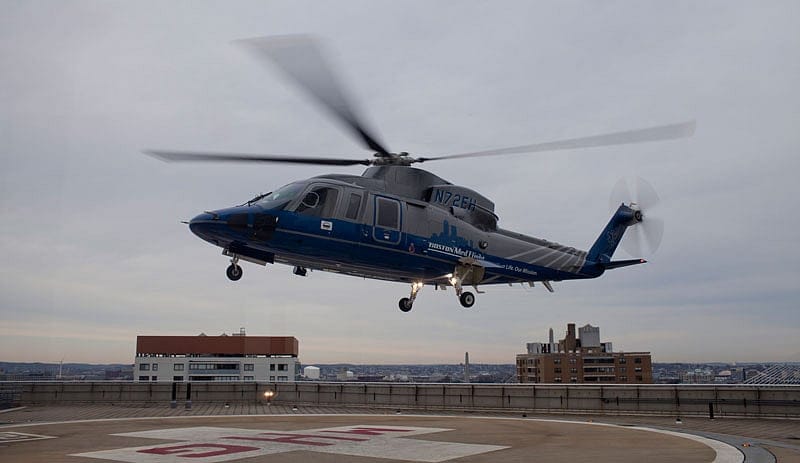Boston MedFlight teams with hospitals to save lives

BOSTON – The crew of Boston MedFlight, a fleet of helicopters, airplanes, and ambulances, leaves no one behind. Taking exceptional care of all patients, irrespective of one's ability to pay, is standard practice for the exceptional staff working at this non-profit charity with bases in Lawrence, Bedford, and Plymouth. Boston MedFlight realizes every patient is someone's parent, child, relative or friend.
"Boston MedFlight is an integral part of a success story that reliably delivers robust medical care to patients en-route between small community medical centers and any one of Boston's six comprehensive teaching hospitals," said Dr. Serguei Roumiantsev, of Massachusetts General Hospital's New-Born Intensive Care Unit. "MGH's team, like Boston MedFlight members, pride themselves on being on the forefront of an excellent medical care delivery system that works with hope and heart for all their patients and families."

